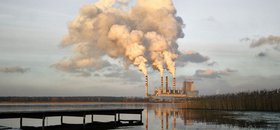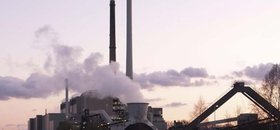Censored Science Rule Virtual Hearing Testimony

Testifying at a virtual hearing hosted by the Union of Concerned Scientists, James Goodwin laid bare the feeble legal underpinnings of EPA's "censored science" rule.
Read PDF
Author(s): James Goodwin
Virus provides lessons on government, science and politics

Joseph Tomain, writing in the Cincinnati Enquirer, discusses lessons to be learned -- so far -- from the coronavirus pandemic.
Read PDF
Author(s): Joseph Tomain
Deregulation on Demand: Trump EPA Panders to Polluters in Dismantling Clean Power Plan

Corporate capture of regulatory agencies like the Environmental Protection Agency has long been a barrier to promulgation and enforcement of effective safeguards. But under the Trump administration, it has progressed to a dizzying degree of brazenness, helping to power the president’s dangerous assault on public safeguards. In Deregulation on Demand, CPR's James Goodwin, working with researchers from the Environmental Law Clinic at the University of Maryland Francis King Carey School of Law, documents the extent to which corporate capture by polluters played a role in the dismantling of the Clean Power Plan.
Read PDF Read Online
Author(s): James Goodwin
The Pandemic and Industry Opportunism

Writing for The Regulatory Review, Rena Steinzor notes that in March 2020, with the coronavirus pandemic in full swing, EPA enforcement chief Susan Bodine issued a memo offering businesses assurance that EPA would overlook certain regulatory violations for the duration of the COVID-19 crisis. Public interest groups roundly criticized the new policy, prompting EPA to cry "fake news."
Read Online
Author(s): Rena Steinzor
Trump's EPA Uses Coronavirus Crisis to Mask Environmental Deregulation and Suspend Enforcement

Writing on ACSBlog, Joel Mintz describes the several ways that the Trump EPA has seized on the coronavirus pandemic as an opportunity to undercut a range of environmental protections.
Read PDF
Author(s): Joel Mintz
Joint Letter on Coronavirus and Environmental Justice

CPR joined dozens of environmental and social justice organizations in writing to Congress urging that legislation responsive to the economic impact of the coronavirus pandemic account for environmental justice concerns.
Read PDF
Joint Letter on Extending Comment Periods During Coronavirus Emergency

CPR joined with 163 public interest organizations in signing a letter to OMB calling on it to direct executive branch agencies to hold open all active comment periods for pending rulemakings for as long as the Declaration of a National Emergency concerning the coronavirus remains in effect.
Read PDF
CPR Letter to OMB Re Comment Extension During Coronavirus

In March 2020, with the full implications of the novel coronavirus just coming into view, CPR Member Scholars and staff wrote to the Office of Management and Budget calling on OMB to direct all executive branch agencies to hold open all active comment periods for their pending rulemakings as long as the COVID-19 declaration of national emergency remains in effect.
Read PDF
Author(s): William Andreen, Rebecca Bratspies, Alejandro Camacho, Gilonne d'Origny, Michael C. Duff, Heather Elliott, David Flores, Alyson Flournoy, Bill Funk, Robert Glicksman, Carmen Gonzalez, James Goodwin, Michele Janin, Sarah Krakoff, Thomas McGarity, Darya Minovi, Joel Mintz, Dave Owen, Laurie Ristino, Matt Shudtz, Karen Sokol, Rena Steinzor, Steph Tai, Katie Tracy, Sandra Zellmer
From border security to climate change, national emergency declarations raise hard questions about presidential power

"Presidential emergency powers could provide useful tools for addressing climate change, but taking this route sets an important precedent," Dan Farber writes for The Conversation. "If presidents increasingly make free use of emergency powers to achieve policy goals, this approach could become the new normal – with a serious potential for abuse of power and ill-considered decisions."
Read PDF
Author(s): Daniel Farber
EPA Enforcement in Distress — and More Trouble Is Brewing

Writing in The Revelator, CPR's Joel Mintz describes yet another White House effort to weaken environmental safeguards, this time by "quietly and ominously ask[ing] polluters to help identify new opportunities for deregulation."
Read PDF
Author(s): Joel Mintz
